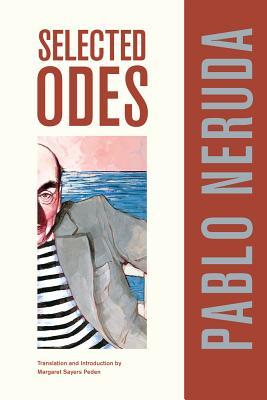
To write simply of simple things was a task the poet undertook consciously, following his experiences in the Spanish Civil War, the "social conversion" that resulted from a visit to Macchu Picchu, and the writing of his epic Canto general (California, forthcoming). The odes are arranged in brief, sinuous lines that flow down the page and connect the poet to the animal, mineral, and vegetable world, to people and objects, and to the landscape of history. "Chile," Neruda once said in reference to the work of sixteenth-century poet Alonso de Ercilla, "was invented by a poet." In accepting the Nobel Prize for Literature in 1971, he declared that "We [writers from the vast expanse of America] are called upon to fill with words the confines of a mute continent, and we become drunk with the task of telling and naming." The odes reflect what Neruda saw as both an obligation and a privilege-the naming and defining of his world.
To write simply of simple things was a task the poet undertook consciously, following his experiences in the Spanish Civil War, the "social conversion" that resulted from a visit to Macchu Picchu, and the writing of his epic Canto general (California, forthcoming). The odes are arranged in brief, sinuous lines that flow down the page and connect the poet to the animal, mineral, and vegetable world, to people and objects, and to the landscape of history. "Chile," Neruda once said in reference to the work of sixteenth-century poet Alonso de Ercilla, "was invented by a poet." In accepting the Nobel Prize for Literature in 1971, he declared that "We [writers from the vast expanse of America] are called upon to fill with words the confines of a mute continent, and we become drunk with the task of telling and naming." The odes reflect what Neruda saw as both an obligation and a privilege-the naming and defining of his world.
Paperback
$26.95